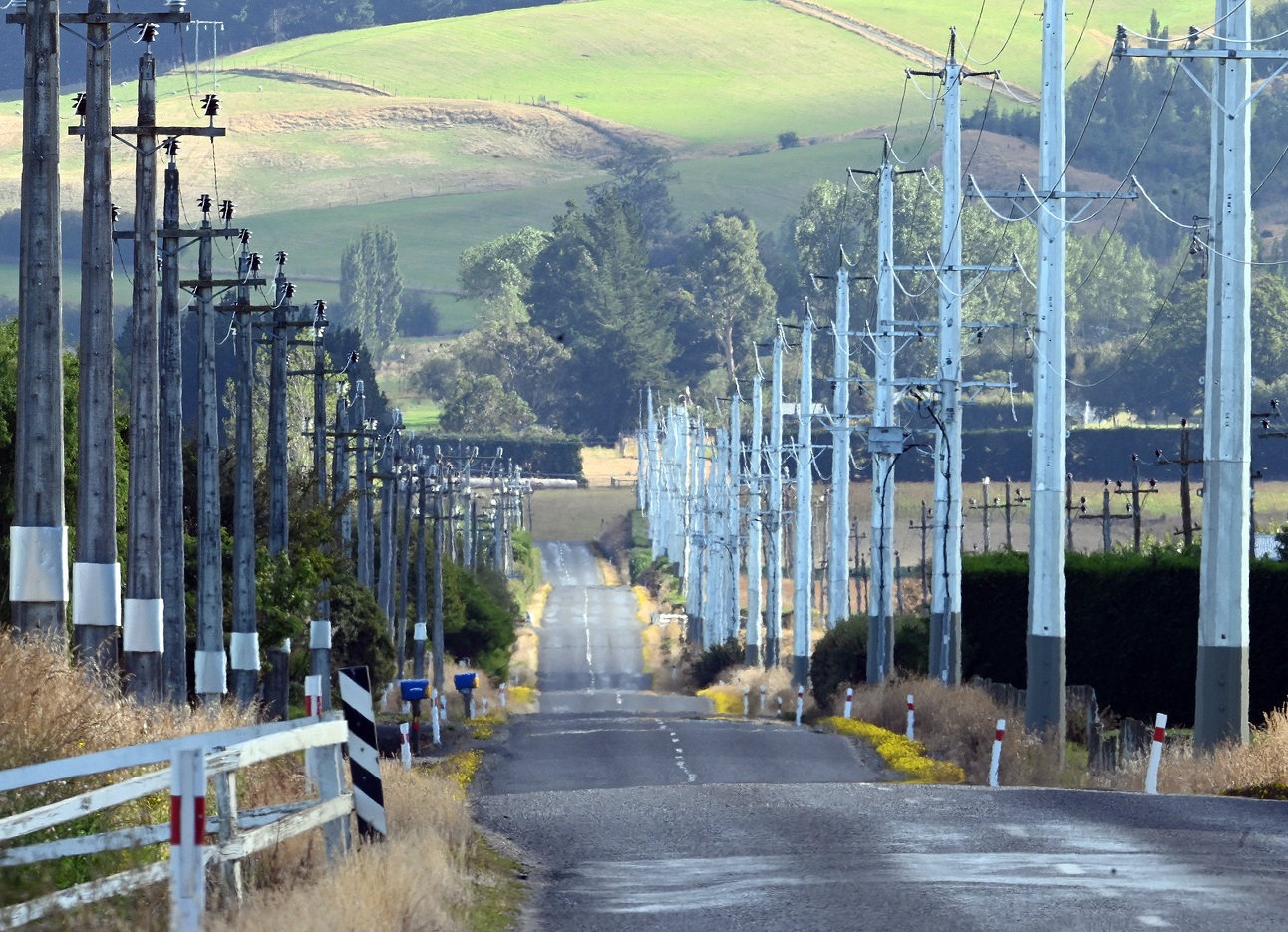

To ensure thriving communities, now and into the future, we need to understand and be able to read the vulnerabilities and resilience of lifeline infrastructure as we confront the climate crisis.
The NZ Lifelines Council describes lifelines as the "essential infrastructure and services that support our community utility services such as water, wastewater and stormwater, electricity, gas, telecommunications and transportation networks including road, rail, airports and ports".
Here in Ōtepoti Dunedin, the City Council currently owns a critical lifeline — the main electricity network: Aurora Energy. Aurora is managed through Dunedin City Holdings Limited, a council controlled company. Now, however, the council is now considering selling Aurora to repay debt and create an investment fund, as a way of limiting an increase in rates. The cost-of-living pressures are very real.
In the mid-’80s, the New Zealand government began a programme of privatisation. This was the introduction of neoliberalism to Aotearoa. In 1998 the Electricity Industry Reform Act broke the Electricity Corporation of New Zealand into three competing state-owned enterprises, which were later partially privatised: Meridian, Genesis and Mighty River Power (now Mercury). It also separated the ownership of electricity networks into separate network asset businesses and electricity retail businesses. As last year’s Generating Scarcity report argued, "Collectively, the gentailers have delivered $3.7 billion in excess dividends to shareholders [between 2014-2021, and] underinvestment in renewable generation enables high-cost high-emission fossil fuel electricity to set the prices [ ... ] dragging prices up across the market." Privatisation has not improved wellbeing.
The council will now consult the public over the proposal to sell Aurora, and consider public feedback in May. The proposal to privatise Aurora Energy is significant and our decision will have short and long-term impacts for community wellbeing, so it is essential we engage.
The Commerce Commission regulates monopolies like lines companies, whether community or privately owned. But we also know that the Commerce Commission practises light-touch regulation — just look at the supermarket duoply and the excess profit they made in 2023 of more than $1 million a day under a regime regulated by the Commerce Commission.
In evaluating the pros and cons, it would be valuable to be able to compare the performance of different ownership models (public vs. private) for electricity distribution networks. It would be equably valuable to know if comparisons of operational models, openness to innovation, responsiveness to community, difference in internal culture and corporate responsibility (such as retaining jobs locally or paying a fair amount of corporate tax) has been done.
Another consideration is the type of asset sale the council is considering. Is the council proposing a sale on the open market to the highest bidder, or is it considering something else, like community ownership through a ring-fenced sale to Otago ratepayers. Investment in an energy monopoly is an attractive investment, with an effectively guaranteed rate of return (subject to sound management) and income indexed to inflation.
The concern about the unaffordability of rates is not limited to the Dunedin City Council. Councils around the motu have all been caught out by the Government’s repeal of Three Waters legislation, which has pushed the significant costs of upgrades to lifeline water infrastructure (drinking water, wastewater and stormwater) back on to councils. This has increased the pressure on the budgets of councils, which are already stretched, pushing rates higher. It is behind the latest push towards privatisation.
Alongside the cost-of-living question, the other two important questions are whether retention of, or sale of Aurora will help or hinder Dunedin’s Zero Carbon Plan, and which option will deliver the most responsive, adaptive and innovative operation to contribute to a fully decarbonised, flexible and participatory electricity network fit for the 21st century.
As the climate crisis deepens, we need to understand lifeline infrastructure vulnerabilities and the settings that will help or hinder action to both reduce emissions and adapt to more extreme weather events. It is not enough to simply consider the physical infrastructure. We know that systems of control and operation are just as important for community wellbeing. Unlike the reading of palms, this is not a frivolous decision. Electricity distribution networks provide critical lifeline infrastructure we all depend on.











